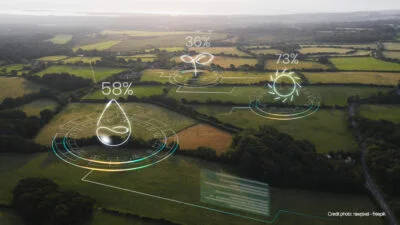Taking the pulse of data driven approach in the natural resources management sector in Mozambique
Mozambique’s natural resources management sector has since been seen as a key driver of prosperity and a sign of rural transformation. At least three quarters of the population depends upon natural resources for income generation, as well as the central government for fiscal revenue, income and poverty reduction. With rapid population growth and increasing urbanization, the path for a sustainable development depends on how various stakeholders coordinate their actions and implement critical policies and interventions.
Therefore, reliable data and information management could enable collaborative actions amongst stakeholders and deliver targeted solutions to various segments of the society, including local communities. Today, with improvements in connectivity, including mobile networks, real time data and information can be generated at a very fast pace. Besides, the economic potential in the data and information management ecosystem is enormous, as mobile technology alone could create opportunities for income generation at the local level.
Data has been at the heart of the UN’s Sustainable Development Goals, to tackle the world’s most pressing problems by 2030. To understand how data-driven approaches are being used in the natural resources management sector in Mozambique, Data4MOZ conducted an online survey to see how data and information management has been perceived and used at the institutional level. The survey reached out to two dozens of institutions/organizations supporting and/or implementing initiatives in the natural resource management sector in Mozambique.
More organizations have data and information management infrastructure. More than 95% of the organizations/institutions surveyed have in place a framework for digital competence that enables data and information management, including technology and human resources. The organizations are categorized and distributed across different sub-sectors (land use management, forestry and conservation, climate change and disaster reduction, environmental quality and agriculture and livelihood).
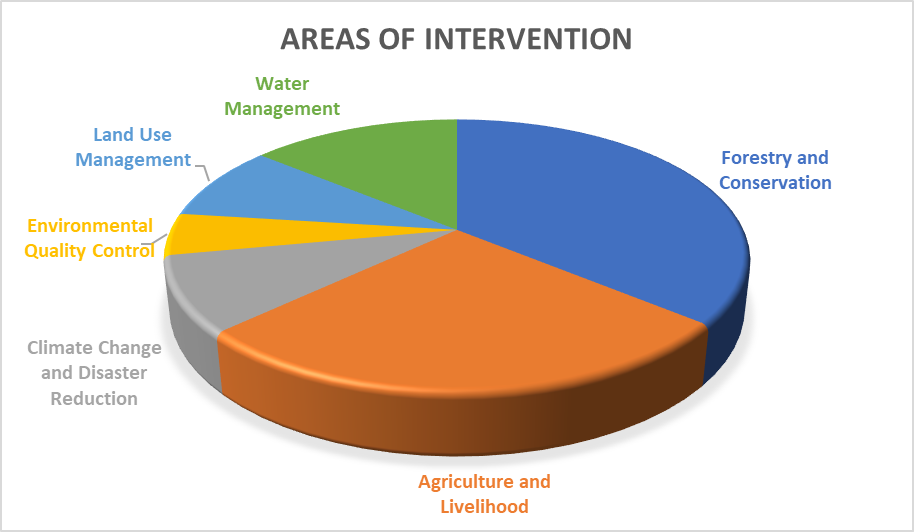
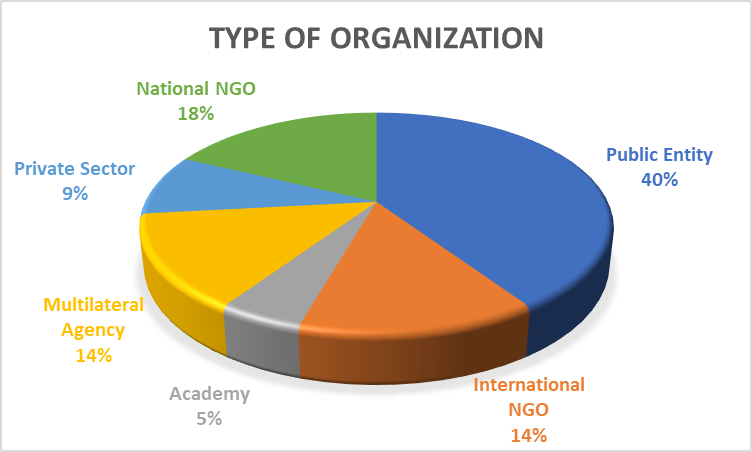
Using data and information management for decision making. Our sample shows that across each organization, data and information management has been used to address different components of program implementation and project management. However, the survey indicates that fewer than 45% of organizations directly use data and information for management decision making.

What is holding back organizations from fully harnessing data-driven decisions? The most commonly cited reason combines both lack of technical capacity and technology infrastructure. More than half of organizations have reported absence of adequate data and information infrastructure, data analytics expertise and the capacity to translate data and information into actionable solutions.
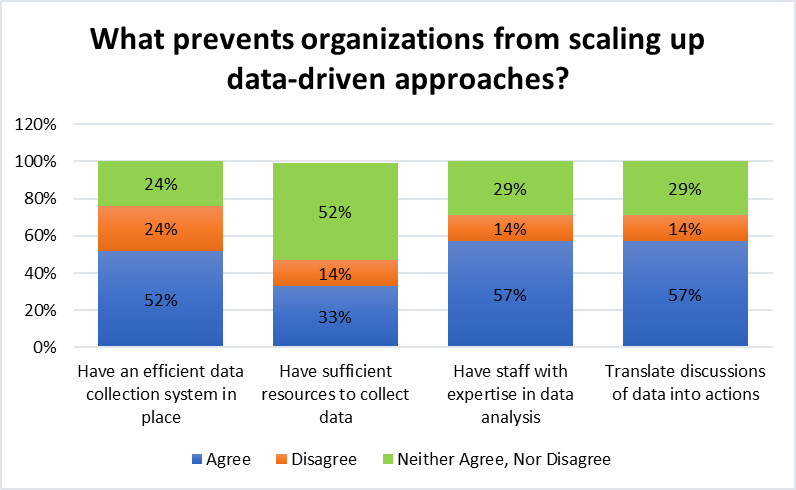
Filling the gap on the decision making process in the sector. While there has been a recognition of the importance of robust data and information framework amongst surveyed organizations, in reality the skills to run data-driven processes are still rare. The survey shows that improving data-driven approaches in the natural resources sector depends primarily on building institutional capacity, as well as strengthening collaborative arrangements to enable data quality, management and data sharing. But even with all that said, the success of data-driven decisions in the natural resources sector can be effective only if the inherent culture in the organization looks into data and information as an critical asset, while also using it as a valuable resource for the organization’s growth.
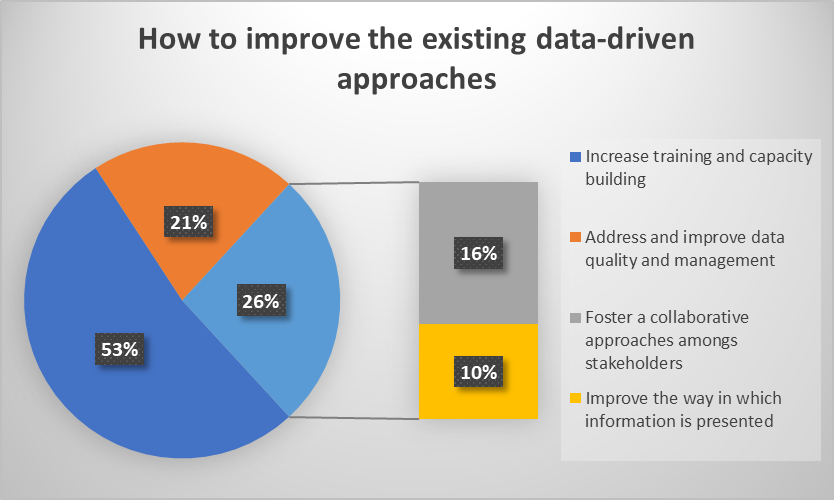
These findings will serve as the basis for a thorough assessment, targeting a wide range of stakeholders in the natural resources sector. While the results are not conclusive, we hope that our preliminary effort establishes a foundation for a open discussion on the role of data-driven approach in the sector, as well as derive effective solutions to decision making based on data and evidence.

